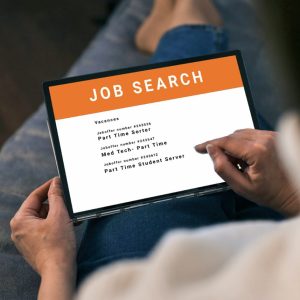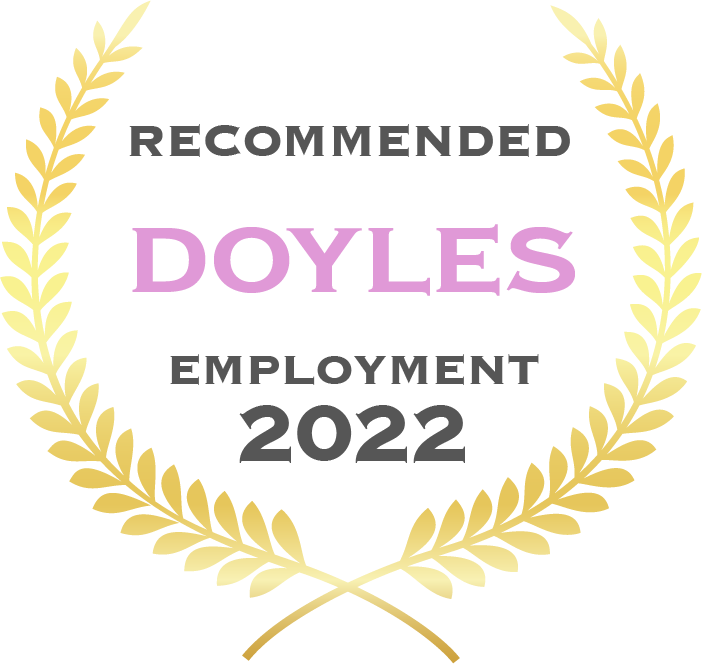Latest Workplace News
What’s new this fortnight?
After a brief hiatus, our fortnightly newsletters are back!
‘Tis the season!
With less than 4 weeks to go until Christmas, as the silly season kicks off, a reminder to employees to ensure that their policies on appropriate workplace behaviour and outside of work events are up to date, sent to employees with reminders about appropriate conduct at Christmas celebrations, and that steps are taken to ensure that the associated safety risks of attending such events are proactively managed (including the risks associated with alcohol consumption, psychological hazards, etc.,).
For those employers who have not updated their policies to address the Respect@Work reforms and the new positive duty on employers to prevent sexual harassment, sex-based discrimination, and other related unlawful conduct, they should do so asap.
Million-dollar fines and jail time: How employers can be held accountable in Chain of Responsibility breaches

In a high-profile series of cases, Connect Logistics (the Company) was fined $2.3m and its National Operations Manager jailed for 3 years following an incident where the Company’s truck collided with and killed four police officers, sparking an investigation by the National Heavy Vehicle Regulator (NHVR).
The NHVR Court found that the truck driver suffered from substance abuse and fatigue, but the employer was still found liable for fatigue-related-breaches that Company senior managers were aware of, did not report or address. Further, that there was a practice of employees falsifying time sheets which were approved by senior management. The Managing Director was personally fined $22,500, the truck driver was sentenced to 18 years imprisonment, and the driver’s supervisor was sentenced to a 3-year community corrections order.
The decision highlights Chain of Responsibility obligations on all parties, particularly given criminal liability of directors and senior management for safety breaches.
Case Learnings November 2023 NHVR
FWC says Seek ads may give doubt whether employee was made redundant or unfairly dismissed

The Fair Work Commission (FWC) has heard a late unfair dismissal application after a sacked employee came across a job ad from her former employer advertising her previously “redundant” role. The 8 year long employee was dismissed for redundancy due to a ‘lack of work’, which she did not dispute until she saw an online Seek advertisement of her role just 4 weeks later, leading to her filing an unfair dismissal claim 2 weeks past the 21 day limit.
Whilst the employer claimed that the advertised role was materially different to the redundant role, the FWC found ‘that [was] not evident from the description in the advertisement’. The employer also argued that it has the right to determine when its employment needs change and when it may hire a new employee. Ultimately, the FWC found that the employee ‘ha[d] a reasonable basis to contend that she has been unfairly dismissed and that her dismissal was not a case of genuine redundancy… [The employer] may well be able to produce evidence that there was some change in its circumstances between the date it decided to terminate the [employee’s] employment and its subsequent decision to recruit anew employee, and/or that the new role was materially different.’ The FWC accordingly extended time to permit the employee to press her claim.
Bonita Lineburg v Act Accountants T/A Accumul8 Accountants [2024] FWC 1222 (10 May 2024)
FWC grants employer access to union’s legal documents finding they were not legally privileged
Major mining companies targeted in a multi-employer bargaining test case have succeeded in accessing an unredacted summary of legal advice provided to a trade union (Professionals Australia) after it undermined its legal professional privilege by its sharing of a PowerPoint which directly referenced ‘the written and oral advice provided by external lawyers’.
The bench considered that commissions have ‘traditionally been cautious in ordering any party to produce documents which would reveal internal deliberations as to its industrial strategy or policy. However, this has never been elevated to an absolute rule, akin to a privilege, that any such documents will never be ordered to be produced…’
It was ultimately held that the PowerPoint ceased ‘to have the requisite character of confidentiality’ as it was used in communications to at least 204 employees and there was nothing to suggest that the contents of the PowerPoint were to remain confidential. Therefore, the FWC held that the union has waived privilege over the advice.
This is significant for employers regarding what must be done to maintain privilege and how this can be inadvertently waived.
I, Robot: Unions seeking a total ban on using AI for HR processes
Unions, such as the ACTU, are seeking a ‘total ban’ on using Artificial Intelligence (AI) for HR processes in a submission to the Senate Select Committee on Adopting Artificial Intelligence on the issue. Alysia Blackham, a Melbourne associate professor, submitted that the poor quality or inappropriate ‘garbage in, garbage out’ data and algorithms’ technical biases can lead to discrimination and bias in workplaces.
Amazon encountered issues when it developed an early recruitment tool to review resumes and grade applicants from one to five stars according to who was most likely to get the job. Amazon ultimately scrapped the tool because it systematically discriminated against women applicants for software development and technical jobs. Because it “learnt” male applicants were to be preferred in these kinds of jobs, it reportedly ‘penalised applications with the word “women’s” or the name of all-women’s colleges’.
Blackham revealed that the real risk with AI is a lack of transparency about how it is being used in the workplace, arguing that there is ‘minimal transparency about how employers are using AI, and for what purposes’. She suggests that employers’ duties in regard to AI could and should be enforceable by a statutory regulator, in the same way that there is a positive duty to eliminate the risk of sexual harassment and related conduct in relation to the Sex Discrimination Act 1984(Cth).
Given the rate that technology is continually developing, there is no doubt that employers’ obligations and the law will need to shift in order to accommodate for the emerging risks of AI. With the future of workplace law and HR processes hanging in the balance, selecting, and recruiting staff remains a human based activity.
Senate Select Committee on Adopting Artificial Intelligence inquiry homepage
We hope you have enjoyed this fortnight’s employment law news. See you next fortnight!
The receipt of any information from us in this publication is not intended to create nor does it create a solicitor-client relationship between you and O’Reilly Workplace Law. This publication is for your information and interest only. It is not intended to be comprehensive, and it does not constitute and must not be relied on as legal advice. You must seek specific advice tailored to your circumstances.









